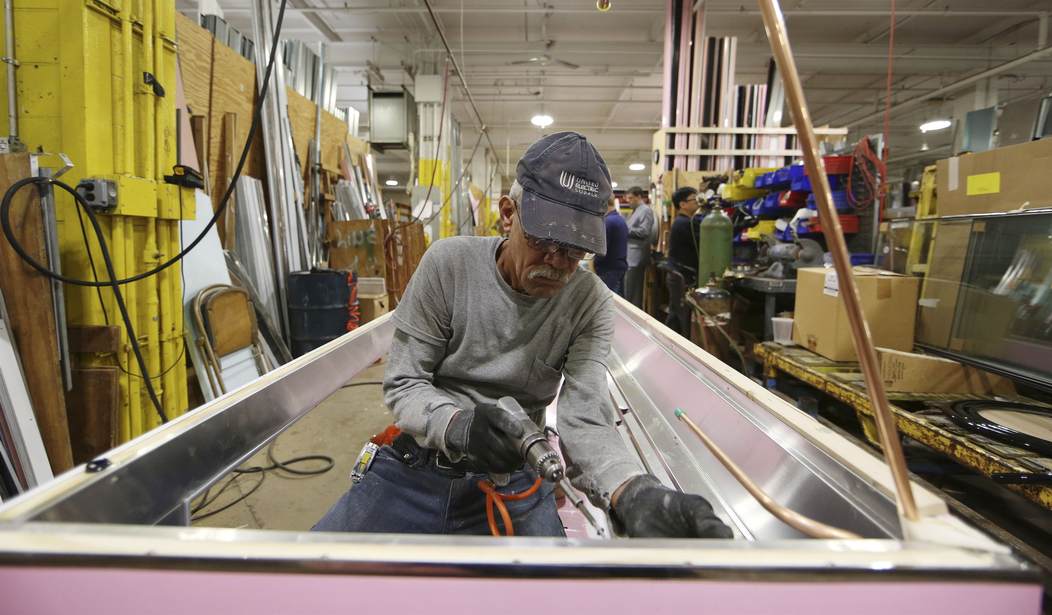President Trump has been clear on his thoughts about China for well over a decade. Part of his pitch to voters was bringing manufacturing jobs back to America. Obama’s response during the election was to ask if he had a magic wand. Oddly, supernatural forces are not really required. Rather, one simply needs to reject the theory of managed decline in the United States that insists we could not ultimately compete with China. The same one that treated the communist country as a developing nation, repeating for thirty-some-odd years that making them economically successful would accelerate the adoption of democratic institutions.
The events of the last few months have demonstrated just how misinformed this theory was. The actions of the Chinese Communist Party in covering up critical information about the novel coronavirus and using the tools of our international institutions to spread disinformation has been astonishing. There is scientific consensus that COVID-19 was not developed as a bioweapon. However, as former Trump Deputy National Security Advisor K.T. McFarland said recently, the actions of the Chinese government turned it into one.
Early in his administration, President Trump signaled that the trade relationship with China was going to change. The use of tariffs on Chinese goods to pressure the regime to come to the table was successful. However, it had secondary effects. U.S. companies began rethinking their supply chains and moving them to other countries to avoid tariffs. According to Forbes:
Global manufacturing consulting firm Kearney released its seventh annual Reshoring Index on Tuesday, showing what it called a “dramatic reversal” of a five-year trend as domestic U.S. manufacturing in 2019 commanded a significantly greater share versus 14 Asian exporters tracked in the study. Manufacturing imports from China were the hardest hit.
Last year saw companies actively rethinking their supply chain, either convincing their Chinese partners to relocate to southeast Asia to avoid tariffs, or by opting out of sourcing from China altogether.
The article then goes on to assert that the pandemic will accelerate this trend for several reasons. First, as the authors of the Kearney report note, the pandemic has exposed the significant risk companies take on having all your supply-chain eggs in China’s basket:
The full extent of the societal and economic trauma the coronavirus pandemic may cause is unknown still, the Kearney report’s authors wrote. But whatever the outcome, a return to status quo China trade pre-pandemic is unlikely.
Kearney predicts companies “will be compelled to go much further in rethinking their sourcing strategies, (and) their entire supply chains.”
The financial incentives are certainly there for companies to rethink their sourcing strategies. However, there are other factors that will also play into their decision making. For some companies producing critical medications, medical supplies and defense equipment, they may be enticed to bring production back to the United States by the government. Senator Tom Cotton (R-Ark.) has been especially vocal about items critical to national security being made in the United States. Many of his colleagues in Congress are echoing his China-skeptical sentiments. Peter Navarro has also hinted that government agencies such as the DOD and HHS could be obligated to source critical items domestically through executive action.
Further, Americans are just starting to realize the extent to which China has infiltrated our academic, cultural, and media institutions. The communist regime’s strategy for doing this was outlined in a book titled Unrestricted Warfare, written by two Chinese generals in 1999. It outlined exactly how to fight wars on soft fronts. This included drug wars, terrorism, and a financial war. Our political and business elites failed to take the regime at their word. They also failed to act as the Chinese-driven fentanyl trade, intellectual property theft, and Chinese direct investment marched on. Perhaps the lure of financial gain was too powerful to ignore. Now average Americans and our allies are paying the price.
Americans are waking up to the fact that the threat Chinese soft warfare poses will have political consequences. Already it has resulted in increasing disapproval of China among American voters. A Pew poll from April found 66% of Americans disapproved of China and a full 91% felt American leadership in the world was a more desirable situation. So much for managed decline.
Politicians and business leaders who fail to recognize this shift in public opinion do so at their own peril. American patience for a soft approach to China will continue to deteriorate as the continued personal and economic consequences of the pandemic are felt. A ‘made in China” label is also becoming very unattractive. Both business and those in government should expect scrutiny regarding their investments and connections to China and very little tolerance for excuses. Demands for transparency in supply chains for finished goods are also likely to increase.
As author Kenneth Rapoza quipped in his article for Forbes:
Sorry, Davos Man. Your China-led globalization is going out of style like bell bottoms.
And oddly, we can thank the CCP and their disastrous pandemic response for accelerating the end of this eyesore in American foreign and industrial policy.










Join the conversation as a VIP Member